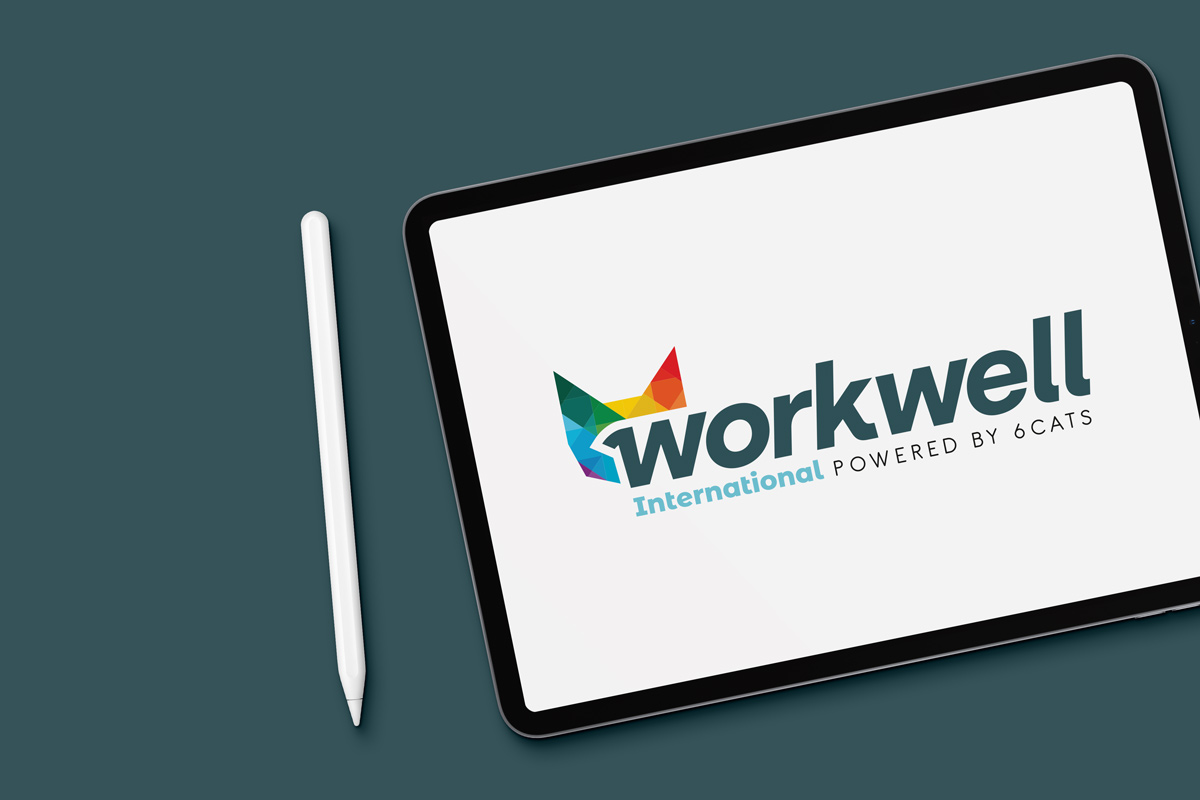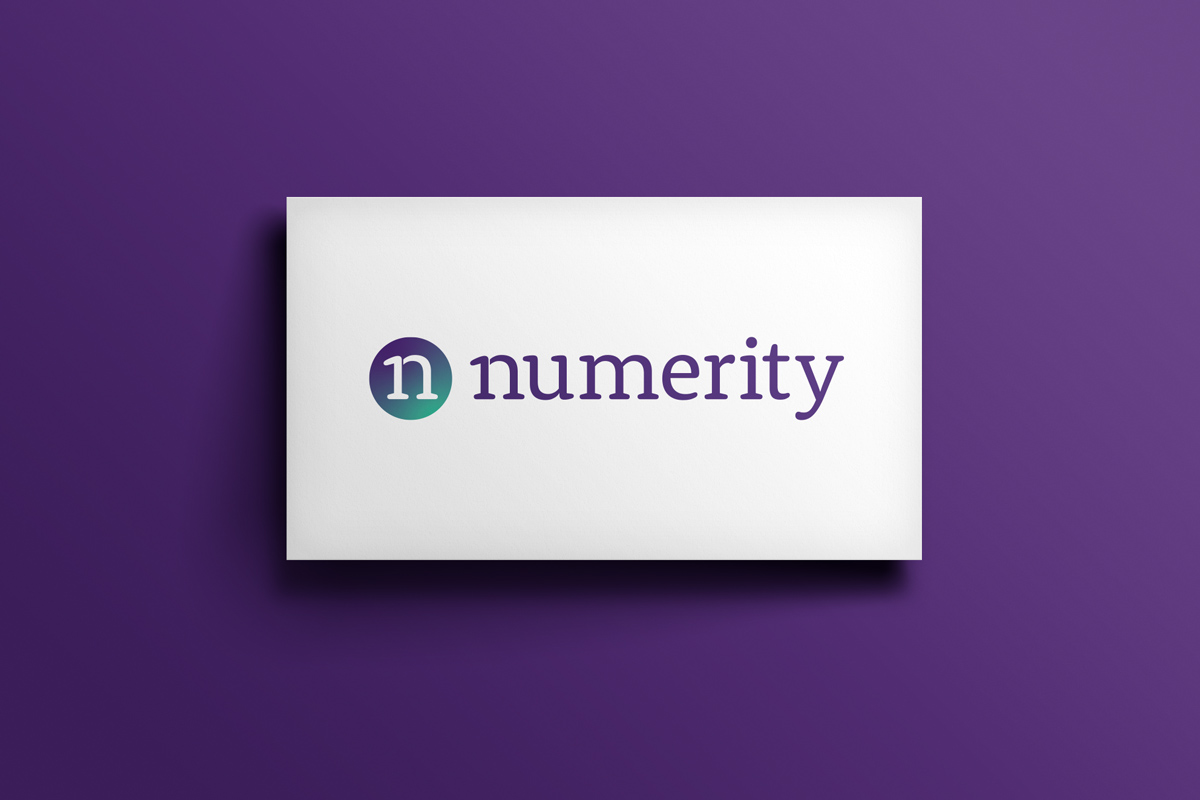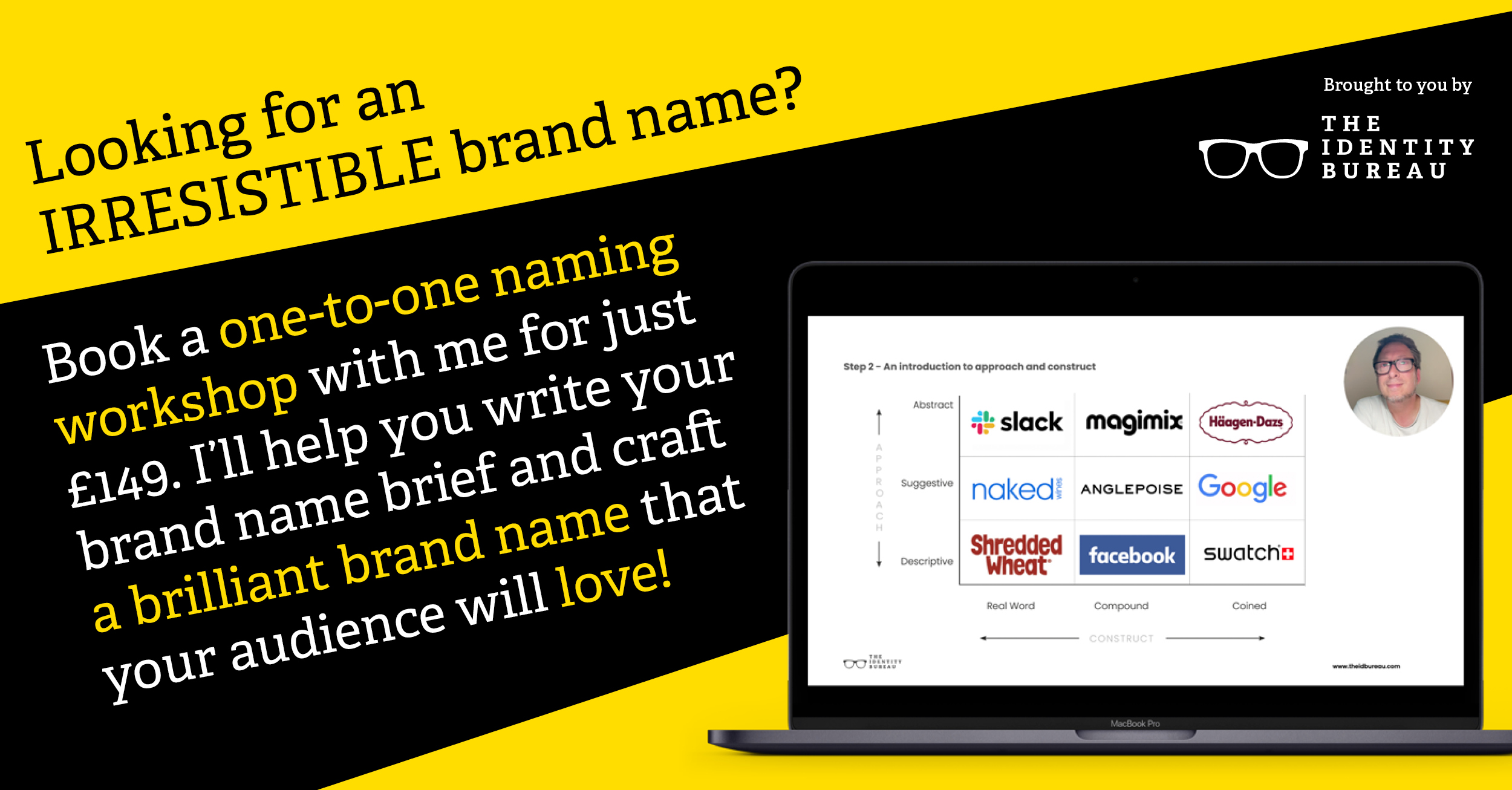Six reasons why it may be time to change your business name
Brands shouldn't need to change their names often, but when they do, it's probably because they've found themselves in one of these six situations...
Article Summary
In this article, you will learn:
• The goal: Your name should be the most long-lasting element of your brand, surviving multiple logo and website refreshes.
• When a name change is necessary, such as when your business outgrows a restrictive name (like 'Pizza Hut') or following a merger of two entities.
• How to spot the failure of bland founder-based names, which lack distinction and hinder your ability to attract modern audiences and talent.
• The crucial advice to avoid names that are too long, difficult to spell (e.g., Desygner), or carry negative or culturally problematic associations.
Added on:
Updated on:
File under:
Written by:
In an ideal world, your brand name would have been created after you'd done some foundational brand strategy work (or, as I prefer to call it, you've created a Brand Plan).
This strategy work would, among other things, have pieced together your internal brand values, solidified your positioning, and helped you understand your audience and competition.
Once you take these steps you're in a great position to name your brand, and when done properly and with consideration, your brand name should last a long long time.
It's worth noting that generally, businesses don't change their names all that often. Their brand name is usually the element of a brand identity with the most longevity, and as I point out in my one-on-one brand naming workshop and also, in this article, your brand name will outlast your logo refreshes, marketing strategies and website updates.
Case in point, see the image of the Kellogg's logo evolution and you get the idea, the name remains the same, even when the brand gets refreshed... (image courtesy of 1000 Logos)
.jpeg)
You'll be familiar with some high-profile brand name changes. Facebook renamed their parent company to Meta, as a nod to its intention to dominate the Metaverse, (but perhaps wisely kept the Facebook social media platform as Facebook).
The same can't be said for Twitter's notoriously hasty and poorly executed rebrand to X. With a name that lacks distinction, and a logo that is barely distinguishable from several other companies that decide to call themselves Company-X, what was clear is that the founder Elon Musk doesn't care about the name of his his newly acquired social media platform. Whether anyone would have had the gall to offer it, he certainly didn't take any advice if he ever paced the floors of Twitter, wondering aloud 'Should I change the name to X?'.
Whether anyone would have had the gall to offer it, Elon certainly didn't take any advice if he ever paced the floors of Twitter, wondering aloud 'Should I change the name to X?'.
The sad thing about Twitter's rebrand to X, was that Twitter was a great name. It was easy to spell, say and remember, and it had versatility, allowing other brand assets to be themed around the name. For example we have the bird logo, and the word 'tweets' for posts made on the platform. And, lets not forget, it was a globally recognised brand with 17 years of brand equity. In fact, so recognised was Twitter that some companies refuse to call it X and continue to call it Twitter. As they say, if it ain't broke...
So, rather than changing your brand name just because you bought the company and you're the boss now, when should you really consider a name change?
Below I'll outline some scenarios that might present themselves and provide some good reasons why it might be time to change your brand name.
1) Your business has evolved and its services or products no longer reflect the brand name you had.
This scenario may present itself if your business name is too restrictive and perhaps alludes to a specific product, which may cause problems if your business branches out to sell other things.
Examples of restrictive brand names include 'Fastsigns', 'Tax Assist', and 'Pizza Hut'. I have mentioned the mythical rebrand of Pizza Hut to Pasta Hut, previously, (which never actually happened in real life), but the idea is that a brand name that is too descriptive may restrict your business growth or skew perceptions of your offering as your business evolves down the line.
A fictitious example, if your company was called 'The Tow Bar Company' that sells tow bar for all kinds of vehicles, you may struggle to be recognised for selling other car accessories, such as roof boxes, roof bars, bike racks or trailers, should you choose to diversify down the line.
2) You are merging with another business and need a fresh rebrand that compliments the strength of both businesses under a new brand.
This is a common scenario. When two companies merge or one company acquires another, the combined entity might choose a new name to signify the new partnership and combined strength.
With revised brand values and brand positioning, this is the perfect opportunity to change the name and allude to the combined strength and experience that the new partnership can bring to the table.
An example of this is when 6CATS International was acquired by Workwell International and renamed itself Workwell International (Powered by 6CATS). Although The Identity Bureau was not involved in the renaming process, I did design the original 6CATS logo as well as combine the 6CATS logo with the existing Workwell International logo to create their new brand identity.
When two companies merge or one company acquires another, the combined entity might choose a new name to signify the new partnership and combined strength.

3) You've inherited a legacy brand that needs to modernise to reach a new audience, or the competition just seems fresher.
The scenario: The business has, until recently been run by aging senior directors who are retiring. They're not in touch with modern audiences and see no reason to refresh the brand. They are not, as we say 'brand aware'.
A younger generation of employees is taking over the business and is looking to modernise it to compete with the competition. Often this will be part of an overall brand refresh and is also a good time to change up the brand name, especially if the business is saddled with a legacy founder-based name and is seeking to attract new talent and a younger generation of customers.
Professional service firms almost always use founder-based names (through laziness, lack of awareness, or legal restrictions) so choosing to use a name that differentiates your business can make you appear more modern and can allude to some of the ideas you wish to be understood for.
In the case of my client Jim Clarke, (who didn't inherit the name of his CPA firm JCCPA), he understood that he no longer wanted a founder-based name, and recognised that taking a different approach to naming his firm was an opportunity to differentiate from other founder-based CPA firms. Hence Numerity. Which, as biased as I am, feels, sounds, and alludes to a more interesting CPA firm than one named JCCPA and makes for a more interesting brand identity.
Numerity founder Jim Clarke understood that he no longer wanted a founder-based name, and recognised that taking a different approach to naming his firm was an opportunity to differentiate from other founder-based CPA firms.

4) You need to get away from a bad association
Famously, Phillips Morris Co, the world's largest cigarette manufacturer changed its name to Altria Group to 'distance' itself from the negative health associations that surround tobacco.
Did it work? Well, I don't know what you've been smoking, but what I do know is the Altria website now professes to be 'moving beyond smoking' as is now a 'tobacco harm reduction company'. A tobacco harm reduction company that still sells cigarettes though...
Before the word ISIS became synonymous with a terrorist organisation, there were many businesses named Isis that subsequently decided to change their names due, understandably, to 'negative associations'.
From private equity firms to software companies, from nail salons to dessert manufacturers, all of which were perfectly happy using the name Isis (and why not?) suddenly found themselves having to undergo full rebranding.
5) Your name is hard to spell, say or remember, (or is just too long).
Spelling, pronunciation and memorability are some of the criteria you should measure your brand name ideas again when you shortlist your brand names. You can read more about the criteria I use to evaluate name suggestions in this article.
Having a name that is pronounceable, memorable and easily understood is important when naming your business. Trying to be clever with your brand name, by swapping out letters, omitting letters, or (again) in the case of professional service firms, adding partner surnames repeatedly to your company name does you no favours.
Example one: Alternative spelling. I'll use Desygner, the marketing solution for this example. This is a name that will constantly have to be spelt out to customers when you say it. You can imagine the conversation...
"Hey, check out our website desygner.com"
"Oh I went to designer.com and it redirected me to some old desktop publishing software called CoralDRAW... I didn't learn that in college, so it's probably not for me I'm afraid... thanks though, bye!"
"Oh no its actually spelt 'd e s y g n e r' "
"Oh, so you say it like Des-why-g-ner?"
"No you say it like 'designer' "
Example Two: Overly long company names, that may or may not get shortened to initialisms. My often used example is the American accounting firm Beers, Hamerman, Cohen & Burger, PC (shortened to BHC&B). Will you remember this name in two days time? I doubt it.
Will people simply shorten this to 'Beers and Hamerman' in conversation? Almost certainly.
Finally, does this firm distinguish itself in the marketplace with a founder-based name? Absolutely not, but you won't remember anyway...

6) Legal considerations (i.e. you are using a name that is too close to another brand name, and you receive a cease and desist letter).
A famous example of this is when the World Wrestling Federation (known as WWF) was forced to change its name, to avoid confusion with the World Wildlife Fund (also known as WWF). In short, a court battle ensues, instigated by the World Wildlife Fund with the judges favouring the Fund and the name change was required.
You can read more about this in a Forbes article here...

Conclusion
As you have read, if your brand name has been chosen with consideration, and your target audience in mind, there should hopefully be little reason to change your brand name down the line.
When developing brand name ideas, they should be easy to say, spell and pronounce at a minimum. When you shortlist brand name ideas, before choosing, you should do some preliminary trademark checks to ensure the name you want to use isn't already trademarked in the category you'd like to occupy. This will help you avoid legal issues down the line.
However, if you find your business in one of the scenarios above and you'd like to discuss changing your company name, then get in touch with The Identity Bureau to find out how I can help you rename your business.
You can also download my guide to naming here, or book a one-to-one brand naming workshop with me here to discuss your naming ideas and formulate your brand naming brief with me.











